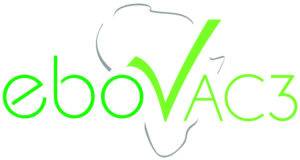EBOVAC3 is part of the IMI Ebola+ programme, which was launched in response to the Ebola virus disease (EVD) outbreak that started in western Africa in 2014. The comprehensive programme contributes to efforts to tackle a wide range of challenges in Ebola research, including vaccines development, clinical trials, and transport, as well as diagnostics. The programme complements work being carried out with the support of other funding bodies.
About Ebola and related diseases
Ebola virus disease (EVD), previously known as Ebola haemorrhagic fever, is a rare and deadly disease caused by infection with one of the Ebola virus strains. The virus spreads in the human population through direct human-to-human contact with the bodily fluids of infected patients who are showing symptoms. It has an incubation period of 2-21 days, and it usually begins with flu-like symptoms, but rapidly progresses to multiple organ failure and blood-clotting abnormalities which manifest as internal and external haemorrhages (bleeding). It is fatal in between 25% and 90% of cases. There is currently no licensed treatment against EVD, and the development of treatments and preventive measures such as vaccines is hampered by challenges including manufacturing-related hurdles, the stability of vaccines during transport and storage, vaccine deployment, and the time taken to diagnose cases of EVD.
The 2014-16 Ebola epidemic was unprecedented in its scale and geographical distribution. World Health Organization (WHO) statistics recorded over 28 000 cases and 11 000 deaths from the disease, most of them in Guinea, Liberia, and Sierra Leone. The epidemic highlighted the need for research into better vaccines, diagnostics and treatments to stop future epidemics in their tracks.

